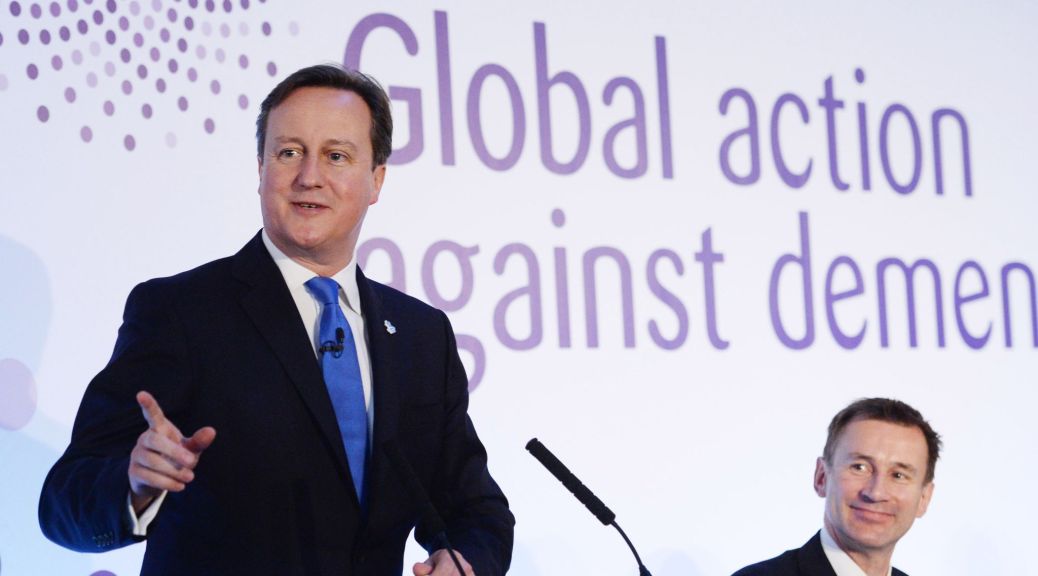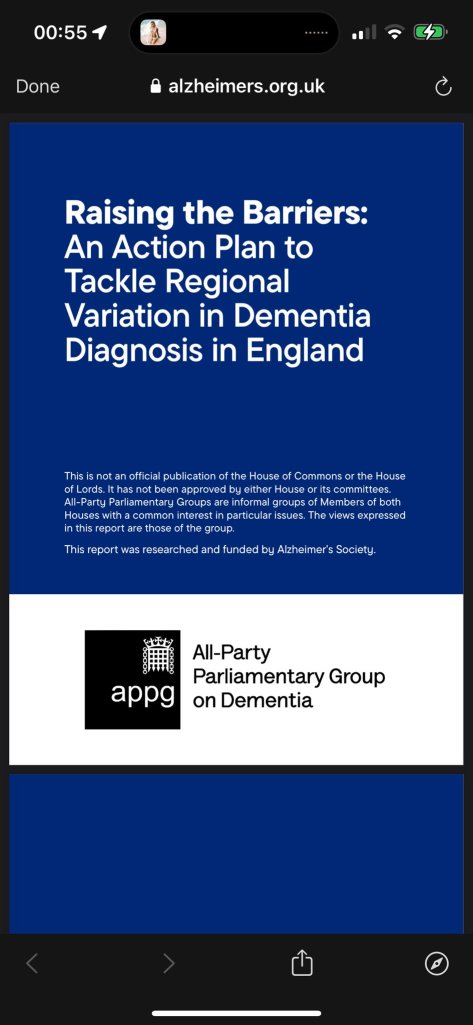The iconic, late Rabbi Lionel Blue always argued that the best aspect of walls was their destruction, to build bridges.
Walls can be a means of a communication.
I was reminded of this comment by Simone Weil recently.

Destruction is a critical part of renewal. Creatively, it is said to be basis of innovation, possibly consistent with a framing of Schumpeter.
I was listening late last night to a podcast. That was Dua Lipa, pop icon, talking to Tim Cook. Cook, as well as being the CEO of Apple, used to play the trombone. So Dua and Tim have at least one thing in common.
Cook clearly has an innovation spark. But it’s more than that.
He’s a firm believer in collaboration. There are many like me who believe that collaboration is entirely consistent with disruptive innovation.
Cook says, “When you bring two people together, the sum is more than their individual parts. We can make 1 + 1 equal 3.”
I firmly believe this too.
Whilst the latest Alzheimer ad is a ‘tough watch’, and has caused some upset, it has also resonated with some individuals. Like me.
Don’t worry.
I’m not about to mount a robust defense of it. That’s not my job, nor my intellectual interest.
But as the late Jo Cox said in her maiden speech in the UK parliament, “There’s a lot more that unites us than divides us.”
I once received a comment from somebody extremely experienced in the field of dementia, “We can agree on that.”
Why? Because we both agree, apparently, that we need to be improving health and social care service provision. That is the one of the stated missions of policy of the Alzheimer’s Society.
To all intents and purposes, my weekend was genuinely spoilt with the death of Dr Jenny Vaughan. I remember her excitement on her first day as the neuro-opthalmology and epilepsy specialist registrar of the National Hospital and Neurology, Queen Square.
Jenny used to call me always ‘Shibbers’. We had much in common, including a trenchant love of social justice, as well as of neurology.
Whilst my instinct is to find ‘living well’ ‘irritating’, I think to a large extent this is performative on my part. The reality is that I spent every living breath trying to make my mum’s life liveable, against the odds.
I certainly don’t feel she died several times. That should never be said jokingly. It is a cruel metaphor.
I understand completely the wish to portray the “harsh realities” of dementia, as Kate Lee explained here.
I think Kate is fantastic. There’s no “but”.
Jenny Vaughan was a strong advocate of “learn not blame”, however.
A few things stick out for me as part of a review of “that ad”.
That creative product, produced at large cost like the ‘rebranding’ of the Alzheimer’s Society a few years ago, is not the best offering ever produced by the Alzheimer’s Society far from it. If we assume that marketing and comms experts are the experts in marketing and comms, we are left unfortunately with the conclusion that the brief was dodgy allegedly.
It’s a belief held by a sizeable majority that, despite portraying carer burnout and grief, the ad is overly nihilistic and dehumanising. I agree, but I can see how the antagonist’s feelings became so strong. I’ve been there too.
I think the reason most of us care so much to say something is that the Alzheimer’s Society is a highly thought of and influential party in the discourse of dementia in England – usually.
There’s no doubt in my mind that dementia carers need help. It’s an incredibly stressful rôle. I receive feedback, and give feedback, in my participation of the carers’ council of Camden and Islington NHS Foundation Trust.
A simple gesture would have been to change the strapline altogether, ably delivered by Colin Firth – and to say something positive about supporting carers through a tough time, by reminding viewers of the excellent helpline of the society.
I still remain unclear who the intended target audience of the ad was. As a marketing product, I do find many elements of it baffling, even under the 7 Ps framework of the Chartered Institute of Marketing.
It is what it is, however. I don’t feel that the current state of play is that the monoclonal antibodies will hugely change the dial. I know they all will be ultimately approved both here and in the US, but possibly at the latter part of the year.
“Living better” should be an aspiration for everyone, and it is a fundamental human right for all of us to be afforded dignity and respect.
I’ve been long enough in the rounds to know that to make an omelette you need to crack a few eggs. Things happen. That is, after all, the basis of innovation and large scale system transformation.
The NHS, like social care, has become grossly underfunded and unable to facilitate all people in flourishing. It has become a fragmented illness service, fixing illness often on crisis timescales. It really doesn’t fulfil its intention of promoting health: brain health could be a priority, as well as vastly improving social care. That ad from the Alzheimer’s Society should be a reminder that dementia is a national priority.
It fundamentally is not a “competition” between living well and “dementia as a terminal illness”.
One minor ‘grumble’ I felt, rightly or wrongly, is that carers and people with dementia in the more advanced stages, appeared to become invisible as they weren’t considered to be able to participate in co-design and co-production.
The great thing about this time were that they were ‘in the room’ this time. Maybe that’s why it was relentless highly sanitised soapified dementia.
This video was co-produced with a more inclusive stakeholder group than previously.
It is actually possible to include people with more advanced cognitive difficulties, if you follow the reasoning about “process consent” from the late Prof Jan Dewing. I completely understand and agree with Prof Brendan McCormack’s stated concerns about that ad, while I’m on the subject.
I think also the destigmatising dementia policy seemed to be one of minimising the “spoilt identity” of dementia as per Erving Goffman, by normalising dementia – that people with dementia in fact looked and behaved like you – hence the meme ‘you don’t look as if you have dementia’.
So suddenly nobody ever ‘progressed’ in dementia to have swallowing difficulties, behavioural outbursts, falls, delirium, and so on.
I don’t think that this was a deliberate fraud, mostly. I think there was a significant minority who were misdiagnosed causing them to receive a dementia diagnosis, when they weren’t actually living with dementia at all. The details about this are important in my view.
We are left with at least two distinct populations, with significant needs and narratives on stigma and discrimination. It is central that we recognise that.
All of us, or the vast majority of us, we want to make the world a better place. Everyone deserves to be included. Everyone’s got a viewpoint you can learn from.
















